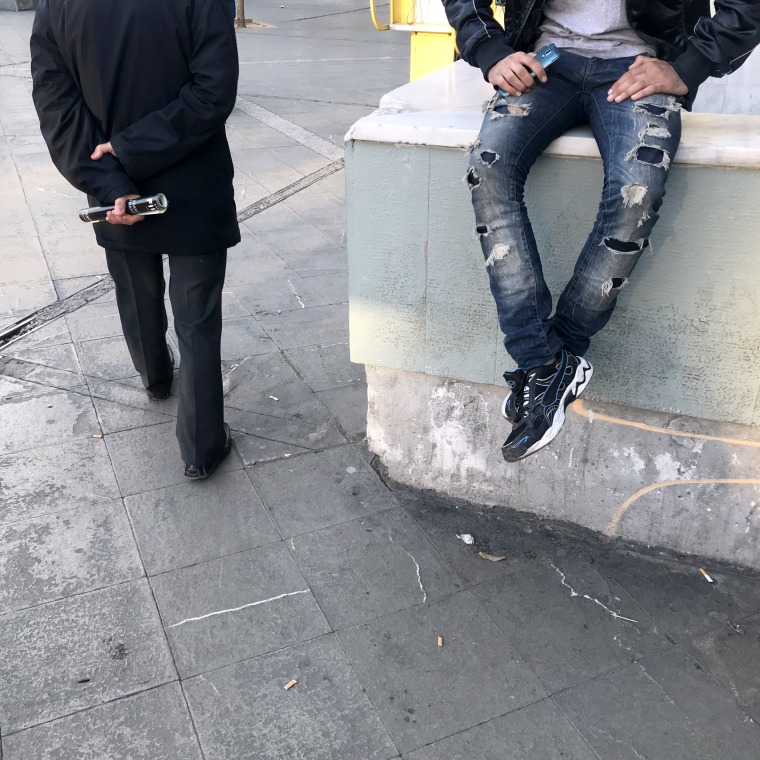ATHENS, Greece — A teenager with missing teeth stands next to a yellow phone booth, his brown eyes dull and glassy.
Just 17 when he left Afghanistan, Khasim says, he walked more than 4,000 miles through Iran, Turkey, Bulgaria and Serbia, eventually reaching the Greek capital — a journey more than 1,000 miles longer than one from New York to San Francisco.
Europe offered employment, safety and a future. Or so he thought.
Khasim, 19, now spends his days hanging around the northwest corner of Omonia Square, which has become a marketplace for young asylum seekers to sell themselves. As gray-haired men scout the area, he has perfected the art of waiting.
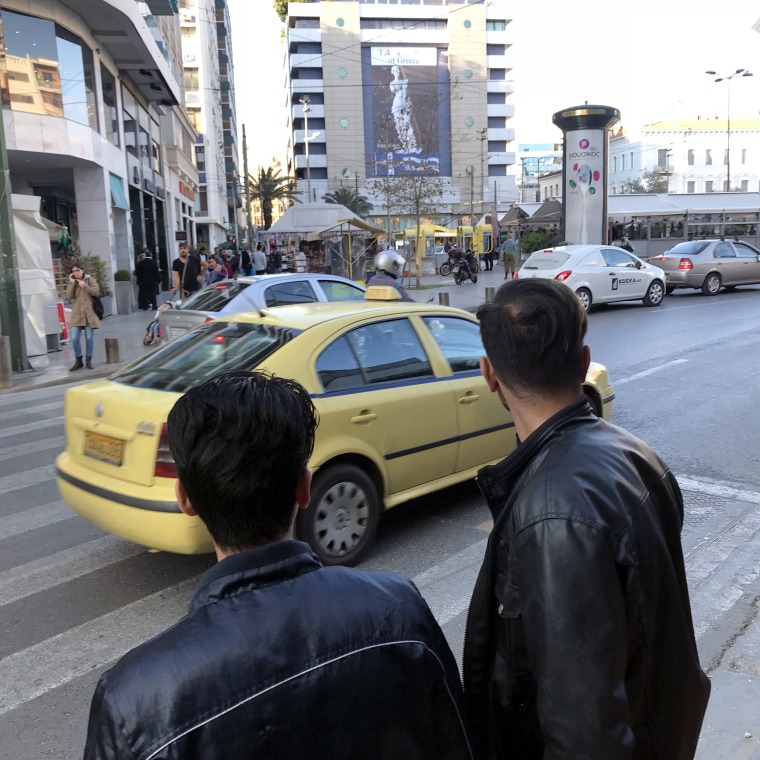
"All the old men are here for sex," said Khasim, who did not want to be identified by his real name because his family is unaware of how he earns money in Greece. "We have great shame, we’re not gay, we don’t like doing this job. ... If you live on the street, you have to do what you have to."
Khasim, a former dentistry student, says he seldom makes more than 20 euros ($25) for sex. An influx of other young migrants has driven down prices.
Not far from Khasim, older white men chat with young migrants out of earshot. Some beckon boys to join them at a small sidewalk café, while others sidle up to youngsters sitting on benches or approach those at the entrance to the subway.
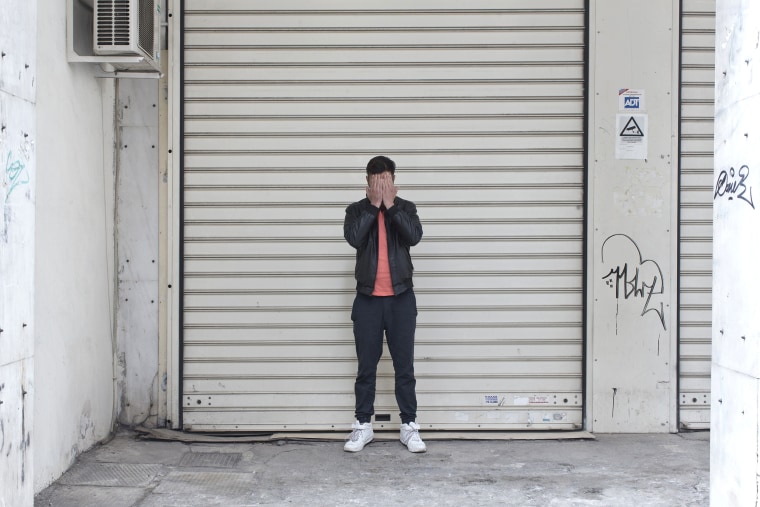
Khasim is trapped in Greece. Two years ago, the Balkan countries to the north of Greece closed their borders, blocking the migrant route to Western Europe. The United Nations estimates that some 50,000 asylum-seekers and refugees remain in the country.
Greece has the highest unemployment rate in Europe — more than 20 percent — and is still grappling with the fallout of the 2008 debt crisis, which left an already-stressed welfare system struggling to cope.
Khasim is among the unaccompanied minors who have resorted to prostitution to meet their basic needs — a practice known as "survival sex."
While there is no official data as to how many young asylum-seekers engage in survival sex in Greece, a report by Harvard-based academics published last year found that the victims tend to be young males. The majority come from Afghanistan, while Syrians, Iraqis and Pakistanis are also resorting to prostitution to survive, according to local social workers.
'My family think I’m staying in the best hotel in Athens'
For Khasim, the aim was always to reach Germany. His hometown, Kabul, was torn apart by regular bombings and there were few job prospects and no hope, he said.
He trekked across Iran, Turkey, Bulgaria and Serbia only to find his path blocked by the fortified border with Hungary. After months on the road, Khasim says he spent a year living in Belgrade and looks back at his time in the Serbian capital fondly, showing a picture of himself on the banks of the Danube River. Khasim eventually headed south to try his luck in Greece.
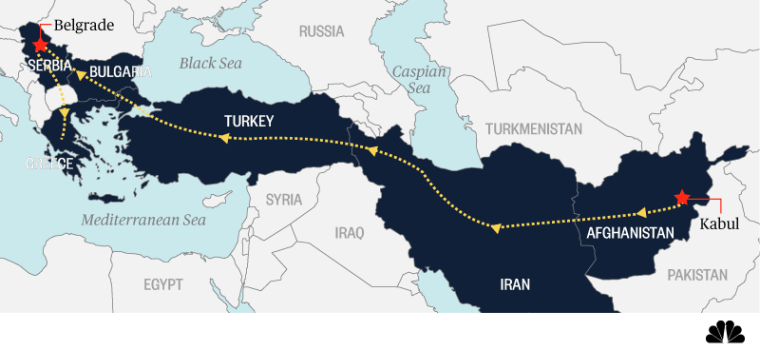
When NBC News met Khasim last month, he had already tried to leave the country four times using stolen or fake passports, but kept getting caught.
"Athens is so bad," he said via Facebook Messenger after his most recent attempt failed. "If I do not go to Germany, I'll kill myself."
As he waits to obtain another illegitimate passport, the teenager walks the streets with his friend Fazul, who also asked to be identified only by a pseudonym.
Fazul, who is from Afghanistan and says he was living in Iran when he set off for Europe, claims to be in his early 20s. However, Khasim thinks he is younger. "He’s a baby, he’s underage. He says he’s 22, but he’s 17 or 16. Look at his face," he said in English, so Fazul could not understand.
Khasim says he used to earn as much as 40 euros ($50) for turning a trick but an increase in the number of young, desperate migrants from countries including Pakistan and Iraq have sent prices plummeting.
"Now it’s more like 10 euros ($12), 5 euros ($6)" for some sex acts, according to Khasim.
Fazul admits that he has agreed not to wear a condom on several occasions, but says that only gets him 5 euros extra.
Khasim says he's refused to have unprotected sex. "His mind’s not right," he said, referring to Fazul's risky behavior.
Once the young migrants connect with customers in Omonia Square, they often exchange cellphone numbers to organize meetings via text message. But Khasim and Fazul also still work on the streets.
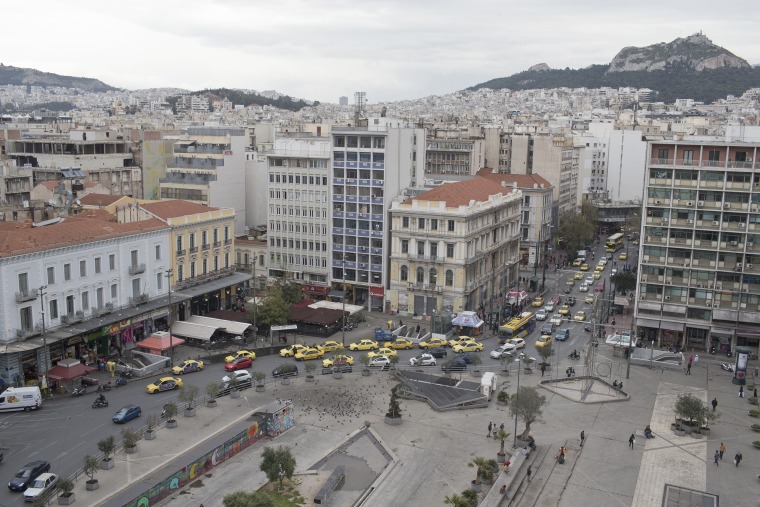
Paying a smuggler to help them leave Greece costs somewhere 3,000 to 4,000 euros ($3,700-$4,900) according to the two teens and local social workers. That's a fortune for the likes of Khasim and Fazul.
The money the two earn from sex goes toward food and cigarettes. Sometimes it stretches to a cheap hotel room for the night. Otherwise the two friends sleep in parks or another nearby square.
"My family thinks I’m staying in the best hotel in Athens," said Fazul, explaining that he cannot tell his parents what his life has become.
Khasim agrees: "I speak to my mother three times a day. If she knew what I did she would block me."
A new reality
There are two main centers of activity in Omonia Square. In the middle, young migrants sell and buy drugs while deals for sex are made in the northwest corner. A police station is just a block away.
As the months pass, youngsters who resort to prostitution often turn to drugs as their new reality begins to take its toll.
“I’m watching my boy be destroyed and I can’t do anything.”
Tassos Smetopoulos, a social worker, says he has witnessed an uptick in the number of young asylum-seekers relying on drugs in the past year. The U.N. migration agency has said it is concerned that drug dependency is getting worse among the migrant and refugee populations in Greece.
Fazul says he spends a big chunk of his money on marijuana. "I smoke a packet of marijuana a day — a packet costs 10 euros," he said, compared to the "5 euros I use for my food."
Huda, a single mother from Iraq who did not want to use her last name, says her 15-year-old son Obaida spends every day in Omonia Square smoking hashish.
"He comes back dizzy and he has strange eyes," said the mother of four, who first fled the Iraqi city of Mosul after its occupation by Islamic State militants in 2014. "He often asks me, 'Can I have 10 or 15 euros?' but I say, 'no,'" she said. "I don’t know where he gets his money from."
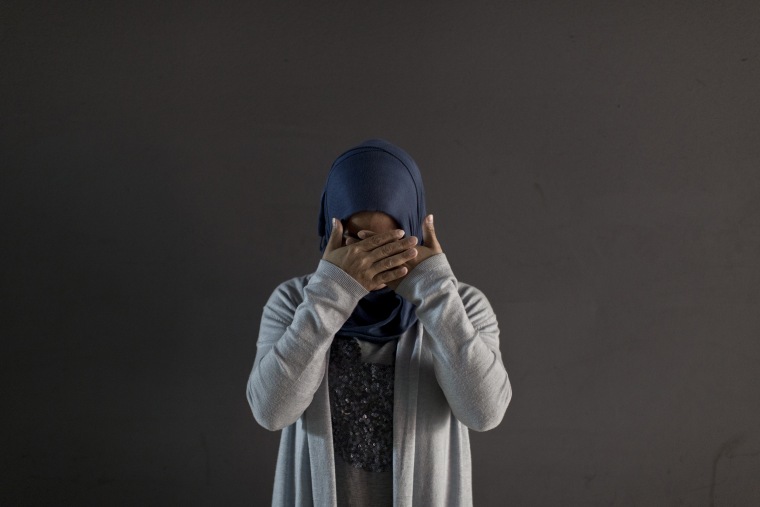
Huda, 38, said her son has stopped going to school and she is concerned about the people he is spending his time with.
"I’m watching my boy be destroyed and I can’t do anything," she said. "They’re not good people in Omonia Square. He says, 'Please save me, I want to go to another country,' but how can I?"
'An extremely difficult situation'
Smetopoulos said survival sex involving asylum-seekers became evident on Athens’ streets around the beginning of 2016. The countries north of Greece had started closing their borders, transforming what was once a transit country into a host nation.
The country is currently home to around 3,000 unaccompanied minors, the official term for underage asylum-seekers who travel on their own. Over 95 percent of them are boys, according to official data.
Greece only has space for around 1,000 unaccompanied children in shelters, while the other 2,000 are on the waiting list. Many of those not in shelters live on the street, or if they’re lucky they live in camps or hotels provided by the U.N.
Those over 18 are not eligible for places in the shelters and for the most part are left to fend for themselves.
In the shelters, minors have access to lawyers, psychologists, social workers and teachers. Many shelters said they also warn youngsters about the dangers of certain areas of Athens and the importance of using contraception during sex. But even here they are not necessarily safe. According to social workers, some minors living in shelters and camps are also believed to engage in survival sex.

The Ministry of Civil Protection, which is in charge of the Greek police, said officers had investigated allegations of sexual exploitation of underage asylum-seekers and migrants in central Athens, but had found no evidence of criminal groups exploiting children for prostitution.
Resources are also an issue. In August, the Greek government took over the management and financing of the reception and integration of refugees. Since then shelters and humanitarian organizations have complained of delays in funding.
At the same time many international organizations and charities began downsizing or withdrawing their operations in the country.
Dimitra Arvanitaki, the director of a shelter near Omonia Square, said her charity had been unable to pay staff this year because of a lack of government funds and could not rely on the generosity of local businesses much longer. "It’s an extremely difficult situation," she said.
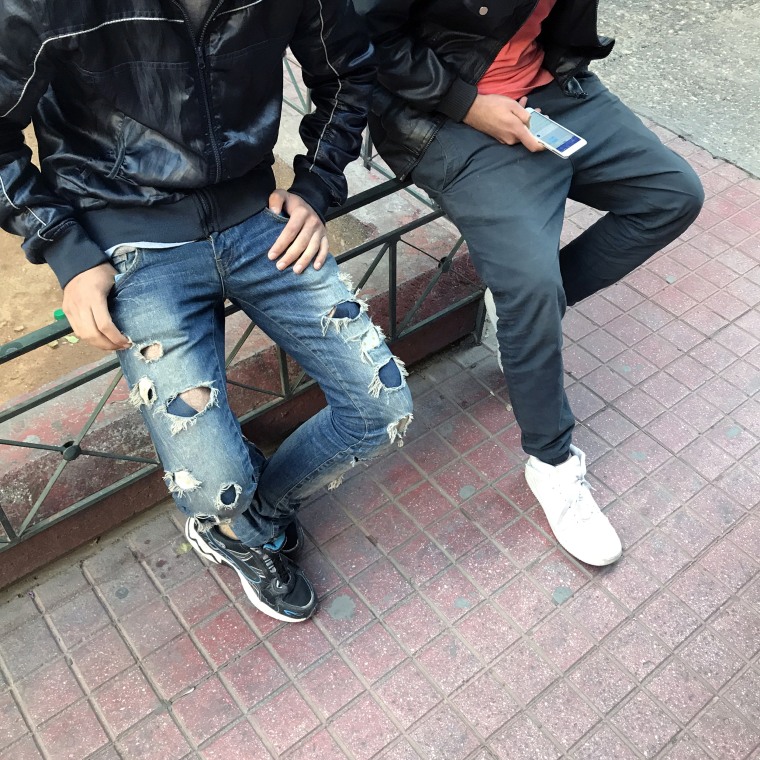
Several organizations also pointed out that the Greek population’s willingness and ability to donate to refugees has begun to wane.
"Donations for refugee crisis are running short," said Zoe Kokalou, a spokeswoman for the Greek charity Arsis (Association for the Social Support of Youth), which supports vulnerable young people and runs the shelter near Omonia Square. "People are fed up with three years of extreme crisis on the part of refugees and more than six years of economic crisis."
Greece has been relying on funds from three international bailouts since 2010. In return for the money, the country has had to impose strict austerity measures, including spending and hiring cuts across most sectors.
Days after NBC News left Athens, Khasim says he was arrested at an airport trying to leave the country on a fake passport. It was his fifth attempt to leave Greece.
"I have very bad luck," he wrote via Facebook Messenger.
Two days later, he got in touch again. "I’m tired of my life, I wish I could get out of this misfortune," he said.
This time the message came with a picture. It showed the northwest corner of Omonia Square and in the background were the yellow phone booths.
